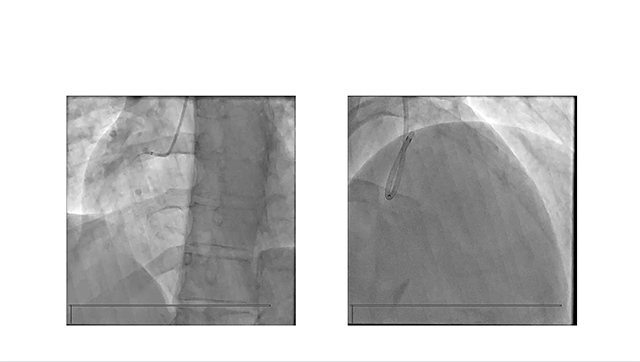16 results for «1601»
16 results
Transcatheter options for degenerated surgical aortic valves - LIVE case
Recommended by PCR
08 Feb 2025 – From PCR Tokyo Valves 2025
A 77-year-old male with a history of SAVR in 2011 (Magna Ease 23) and moderate chronic kidney disease, with preservedLV function, presented with symptomatic severe aortic regurgitation and stenosis, associated with severe MR.
A Sapien 3 Ultra Resilia 23 valve was implanted under local anesthesia, with hemodynamic...
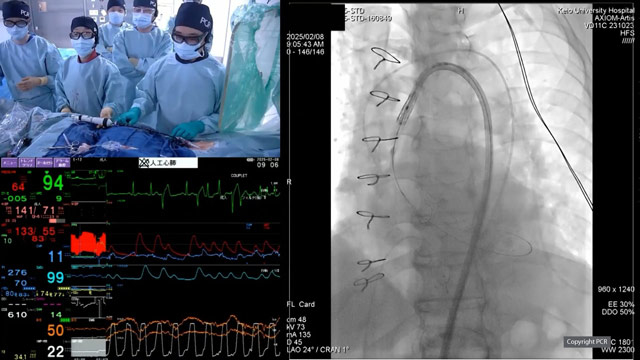
Transcatheter management of failed THV - LIVE case
Recommended by PCR
09 Feb 2025 – From PCR Tokyo Valves 2025
An 84-year-old woman with diabetes mellitus, frailty (5/6), preserved LV function, and aortic stenosis previously treated with CoreValve 26 mm in 2016, presented with symptomatic degenerative stenosis of the valve.
A Sapien 3 (23 mm) was implanted without predilatation but with post-dilatation under general anaesthesia, using cerebral...
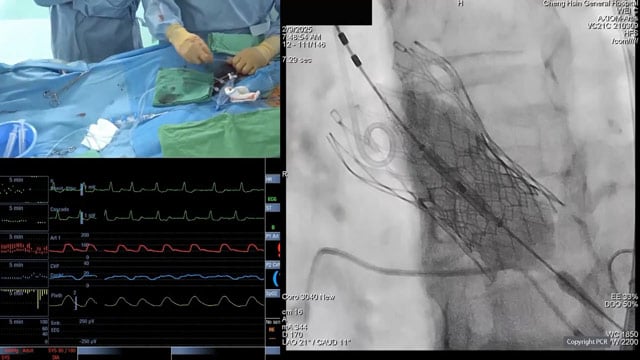
Imaging-guided left main PCI - LIVE case
Recommended by PCR
17 May 2024 – From EuroPCR 2024
A 53-year-old male with a history of advanced malignancy (lung adenoma) and mid LAD PCI last year, along with multiple risk factors (hypertension, dyslipidemia, diabetes, and smoking), presented with angina and a positive stress test and CT. The angiography and CT showed significant left main stenosis...
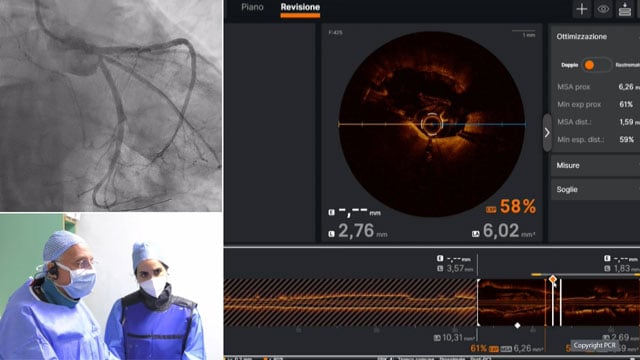
Transcatheter tricuspid valve replacement - LIVE case
Recommended by PCR
15 May 2024 – From EuroPCR 2024
An 82-year-old male with a history of STEMI in 2013, stroke in 2018, cancer, and permanent AF, presented with acute heart failure with predominant right-side failure. Severe tricuspid regurgitation was identified.
The operators implanted an Evoque valve percutaneously under TEE guidance and general anaesthesia via the venous...
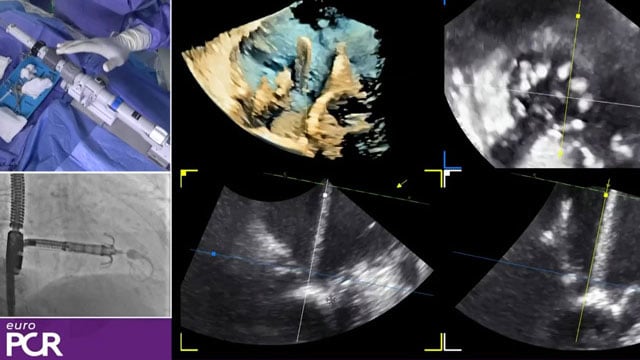
Advanced mitral TEER - LIVE case
Recommended by PCR
24 Nov 2024 – From PCR London Valves 2024
Join us for a LIVE case followed by a recorded case highlighting advanced treatments for severe secondary mitral regurgitation:
- A 75-year-old man with permanent AF, a history of CABG, and symptomatic severe secondary MR (atrial and ischemic causes) with low LV function (45%) underwent mitral repair with...
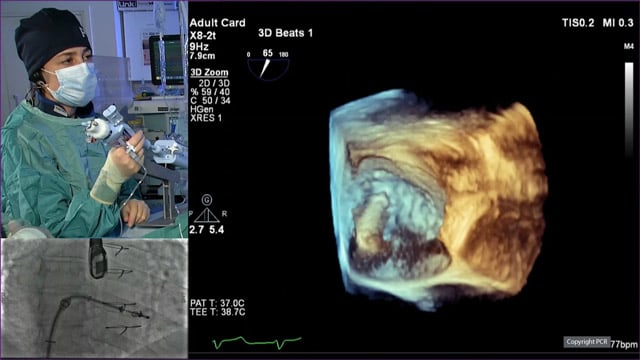
Left main - LIVE Case
Recommended by PCR
10 Dec 2025 – From GulfPCR-GIM 2025
This session delivers an in-depth exploration of left main coronary artery intervention, featuring a live educational case from the Mohammed Bin Khalifa Bin Salman Al Khalifa Specialist Cardiac Centre in Awali, Bahrain. Attendees gain insights into the pivotal role of computed tomography and intravascular imaging in...
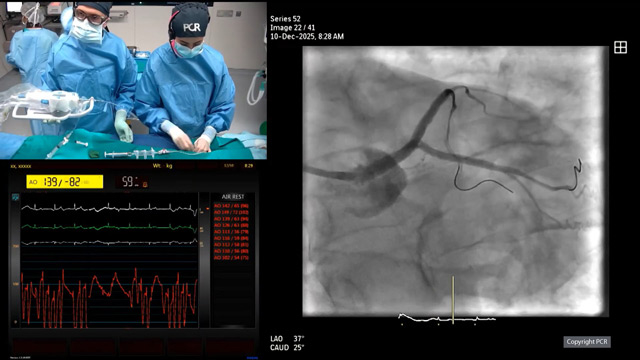
Surgical turndowns interventions and outcomes
07 Oct 2022 – From AICT-AsiaPCR 2022
Through this AICT AsiaPCR 2022 session, view a variety of case presentations and hear your peers discuss them to learn how to successfully manage high-risk PCI procedures.
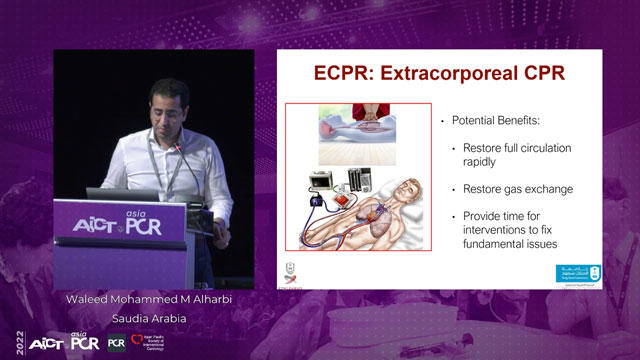
Renal denervation 2.0 - Ready for clinical use?
06 Dec 2023 – From GulfPCR-GIM 2023
Stay updated on the latest clinical evidence, guidelines, and technology related to renal denervation. Engage in discussions about the clinical experiences with ultrasound renal denervation (uRDN) and gain practical insights into selecting patients through real-world cases.
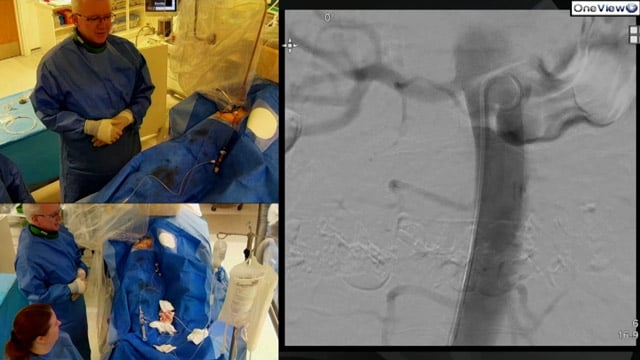
Challenging cases – Best case submissions
07 Dec 2023 – From GulfPCR-GIM 2023
Explore catheter intervention for mechanical valve thrombosis, understand severe chest pain and shock in a young female patient, discover iatrogenic left main coronary artery type F dissection, address refractory ascites transitioning from internal medicine to interventional cardiology, and witness a narrowly avoided rotablation nightmare in this...
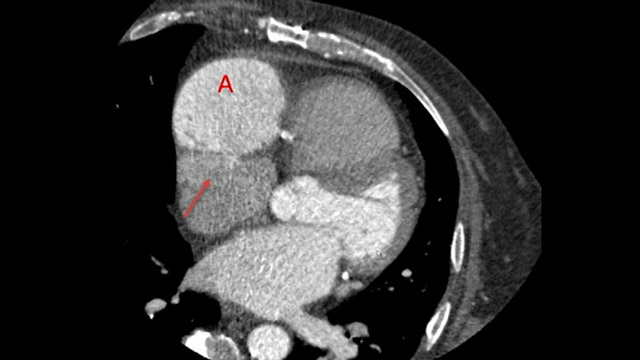
Challenging scenarios in cardiogenic shock
06 Dec 2023 – From GulfPCR-GIM 2023
Thanks to this session, explore the physiology and stages of cardiogenic shock and diverse modalities for its treatment, and acquire proficiency in managing patients undergoing high-risk PCI with cardiogenic shock.
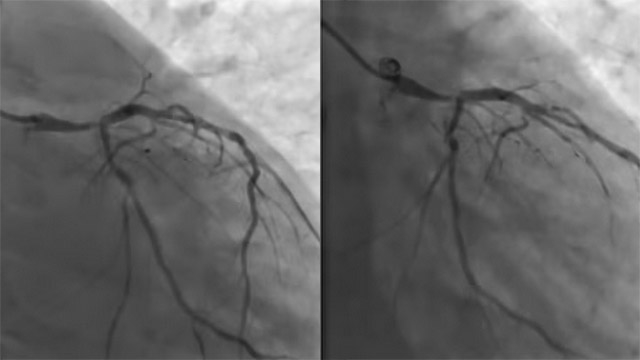
How should I treat STEMI?
14 Dec 2022 – From GulfPCR-GIM 2022
In this GulfPCR-GIM 2022 session, watch a series of STEMI cases and learn more about left main stem, bifurcation, imaging, large thrombus situation, and cardiogenic shock in this particular context and follow the ensuing discussions to be better prepared if you were ever faced with it yourself.
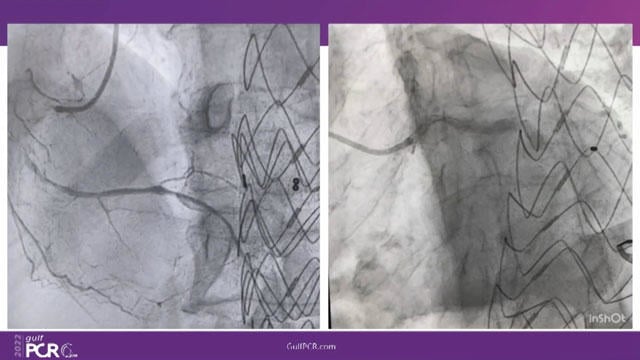
GulfPCR-GIM 2018 Opening Ceremony
19 Dec 2018 – From GulfPCR-GIM 2018
Find out about the course highlights, course directors and the scientific programme presented at GulfPCR-GIM 2018 in Dubai!
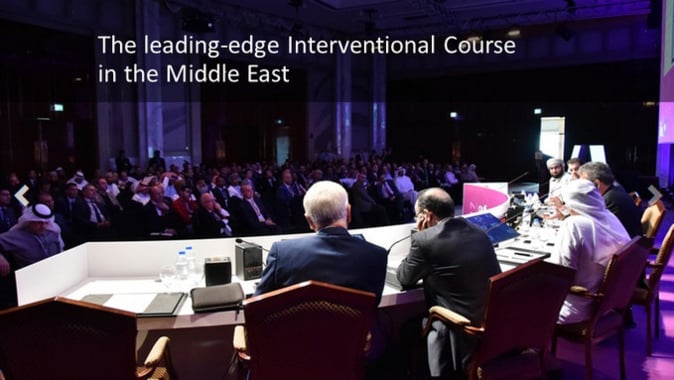
Technical consideration for left main bifurcation in light of evidence
16 Dec 2021 – From GulfPCR-GIM 2021
Watch this session to get proved that provisional side-branch stenting is recommended for the majority of bifurcation lesions, including the LM, that DK-Crush appears to be the best two-stent technique for important SB with complex stenoses, and that imaging and physiology can optimize stenting strategy decision...

Left main intervention in 2021
16 Dec 2021 – From GulfPCR-GIM 2021
In this session whose aim is to highlight imaging value, watch the case of a 64-year-old man with diabetes, hypertension and severe interstitial lung disease who presented with new onset of shortness of breath and functional class NYHA II-III for 3 days...
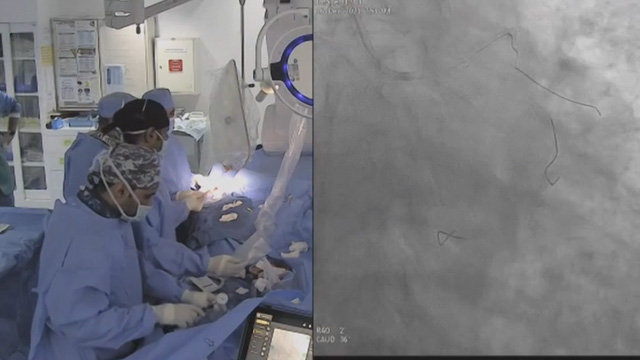
Complete revascularisation: from defining PCI strategy to PCI optimisation
22 Dec 2021 – From GulfPCR-GIM 2021
In this session on percutaneous coronary intervention, learn about available physiology tools for a full coronary assessment, understand how OCT impacts decision-making to strategise and optimise PCI, and learn through case examples how the use of physiology and OCT impacts daily practice.

STEMI in special circumstances
22 May 2025 – From EuroPCR 2025
Address STEMI management in special circumstances such as spontaneous coronary artery dissection, ectatic vessels, and high thrombotic burden. Learn when surgical referral is appropriate and explore interventional strategies tailored to complex STEMI presentations.
